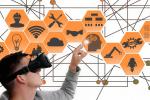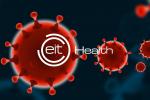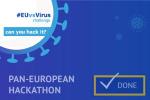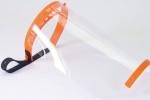
The daily life of Greek researchers under the conditions of the pandemic: the opportunities, difficulties, and differences based on gender, are reflected in the new National Documentation Centre (EKT) publication entitled 'COVID-19 and young Greek researchers. The influence of the pandemic on their research activity'. The publication presents the findings of a survey conducted by EKT between April 15 and May 5, 2020, on a population of mainly young scientists who are conducting research. It is the first publication using large-scale primary research data for Greece in this area, and one of the few to date internationally.
According to the very interesting survey findings, access to the information/digital infrastructure of the country and administrative support from academic and research institutions in terms of ensuring the smooth implementation of research are very positively rated by researchers. Additionally, the pandemic is being treated by the largest percentage of researchers as an opportunity for a number of reasons including: increased time for planning future research activities, digital collaborations and learning new skills.
On the other hand, researchers state that the restriction on movement has had a significant negative effect on access to the required logistical infrastructure, as well as on the ability to conduct field research. At the same time, the majority experience significant personal and family mental strain.
Individual issues, such as the differentiation of researchers based on scientific fields, the gender dimension, the assessment of the prospects of research activity in the future, the views on the position of science in public debate, are among the topics examined and the answers of the participants give a very interesting picture.
As the Director of EKT, Dr. Evi Sachini noted,'The pandemic has shown us that the wider society now understands that the country's specialised human resources are not only one of the most important factors for its proper functioning, but also strongly impacts growth and the economy. Through this publication, and EKT's overall contribution to the provision of up-to-date and valid data for research, we aspire to contribute to the public debate regarding the enormous importance of both research and the country's research community, which will lead to a fairer and more sustainable society that will play a leading role in global technological developments. '
The publication is available online (in Greek) at: https://metrics.ekt.gr/publications/402.
A Research Note is also available online (https://metrics.ekt.gr/sites/metrics-ekt/files/ekdoseis-pdf/2020/ResearchNote_EKT_COVID19_GreekResearchers.pdf)
Key survey findings
Vital public infrastructures and services, such as information/digital infrastructure and the administrative support of Higher Education Institutions and Research Centres, are very positively rated by researchers, in terms of ensuring the smooth conduct of research. 65.1% of researchers say they have experienced little or no difficulty in implementing the research project in terms of access to information infrastructure. Respectively, 46.7% of the answers rated administrative support from public institutions for researchers as good to very good.
Figure 1. Distribution of respondents’ answers (%) regarding COVID-19 effects on a) accessing the information/digital infrastructure and b) the administrative support provided by HEIs and Research Centres. [Likert scale: Very high to zero (1-5)].

The restriction on spatial movement due to COVID-19 has impacted a researcher's ability to access the required logistical infrastructure, as well as the ability to conduct field research. Both of which are critical to the execution of the research project. This is true for researchers in all fields of science, with 41.7% saying they faced great difficulty in accessing logistical infrastructure. Respectively, 53.4% of the researchers state that they had great difficulty performing field research.
Figure 2. Distribution of respondents’ answers (%) regarding COVID-19 effects on a) accessing the logistical infrastructure and b) the ability to conduct field research. [Likert scale: Very high to zero (1-5)].

The spatial restriction has affected the timely completion of research work, as well as the completion of planned publications, participation in conferences (international and national) and calls. 36.6% of researchers state that the pandemic has caused a long or very long delay in their research work, while 43.2% state that they face a long and very long delay in their scientific outflows. The effect, however, is not the same in all scientific fields. This is because of the fact that some of these scientific outputs require physical presence, such as attending conferences, as opposed to others, such as publications in scientific journals. This effect varies from field to field.
Figure 3. Distribution of respondents’ answers (%) regarding COVID-19 effects on a) timely completion of research work and b) planned publications. [Likert scale: Very long delay to no delay (1-5)].

Respectively, the spatial restriction due to COVID-19 has also affected the psychological state of the researchers. According to their answers, 53.3% are experiencing a high level to very high level of personal psychological strain due to the restrictive measures. 53.7% of researchers say their family environment is an added burden.
Figure 4. Distribution of respondents’ answers (%) regarding COVID-19 effects on a) personal and b) family mental strain. [Likert scale: Very high to zero (1-5)].

As in any crisis, there is often room for opportunity. The COVID-19 pandemic is also being treated as an opportunity by 59.6% of researchers. Key individual reasons for this are the existence of more time for study and planning future research activities (77.9%), the prospects that are opened through the increase of digital collaboration (63.9%), and the possibility of learning new skills (46,20%).
Figure 5. Distribution of respondents’ answers (%) regarding whether COVID-19 can be ‘‘viewed exclusively as a crisis situation’’ or ‘‘viewed also as an opportunity’’ [Pie chart]. Frequency distribution (%) of selected reasons by researchers that viewed the pandemic ‘‘also as an opportunity” [Bar plot].


In times of intense misinformation and fake news, researchers believe that the position of science will be upgraded in the public sphere after the pandemic. 72.4% of the study's participants believe that science and technology, as a distinct field of human activity, will emerge enhanced from the pandemic.
Interesting findings also emerge from the analysis of gender-based responses. Thus, for example, women's responses differ from those of men in that the former say they face a very large or large burden (7.8 percentage points more than men).The biggest difference lies in the completion of scientific outputs, where women report much greater difficulty than men by 13.1 percentage points. When it comes to treating pandemics as an opportunity, there were fewer affirmative responses from women than from men. The biggest difference is in the increase in digital collaboration, where women's positive responses lag behind by 7.3 percentage points.
Figure 6. Gender-related distribution of respondents per each question of the questionnaire. Note: Selected scales/values presented in the Graph: ‘‘Very high’’/‘‘high’’ and ‘‘yes’’, ‘‘zero’’/‘‘low’’ and ‘‘no’’.

The research community is a key pillar in the country's technological, economic and growth path. Its critical contribution to the discovery of new knowledge, its transformation into technology, and its co-operation with the public and private sectors to gain an innovative advantage are some aspects of its importance. Consequently, the above findings could be a vital factor in formulating policy to mitigate the negative and enhance the positive dimensions identified by EKT's research.















